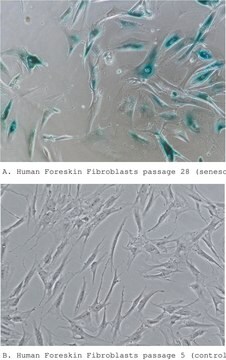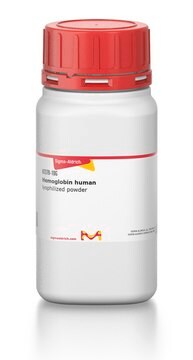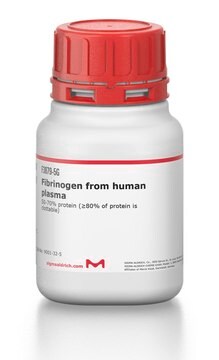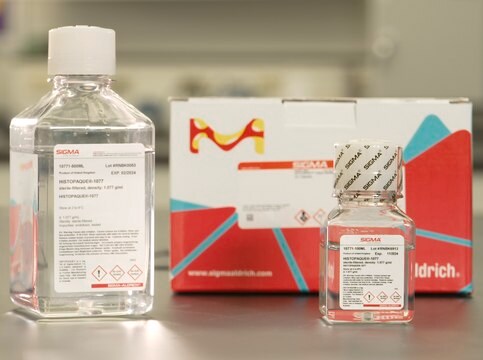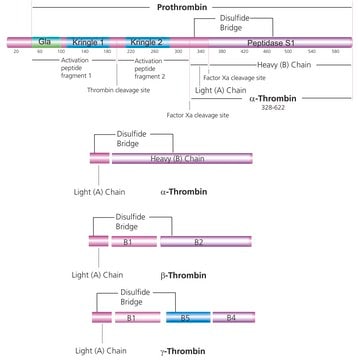D9321
D-dimer, Human
from human plasma, buffered aqueous solution
Synonym(s):
Fibrin degradation fragment, Fragment D-dimer
Sign Into View Organizational & Contract Pricing
All Photos(1)
About This Item
UNSPSC Code:
12352204
NACRES:
NA.61
Recommended Products
biological source
human plasma
Quality Level
form
buffered aqueous solution
mol wt
Mw ~200 kDa
shipped in
wet ice
storage temp.
−20°C
General description
The human D-dimer(s) protein is an indicator of a thrombosis event. This protein is the degradation fragment of fibrin mesh that has been stabilized by Factor XIII. This factor crosslinks the E-element to two D-elements. As a result, this crosslink is the final step in the generation of a thrombus.
Application
The human D-dimer protein is a blood test performed in the medical laboratory to diagnose thrombosis. While a negative human D-dimer result rules out thrombosis, a positive test result can indicate thrombosis or other underlying potential health problems. The presence of D-dimer can idicate the existance of a deep venous thrombosis (DVT) or pulomonary embolism (PE).
Physical form
The human D-dimer protein provided in liquid form constisting of 0.05 M sodium phosphate, pH 7.5, 0.15 M sodium chloride and 0.09% sodium azide.
Disclaimer
RESEARCH USE ONLY. This product is regulated in France when intended to be used for scientific purposes, including for import and export activities (Article L 1211-1 paragraph 2 of the Public Health Code). The purchaser (i.e. enduser) is required to obtain an import authorization from the France Ministry of Research referred in the Article L1245-5-1 II. of Public Health Code. By ordering this product, you are confirming that you have obtained the proper import authorization.
Storage Class Code
10 - Combustible liquids
WGK
WGK 1
Flash Point(F)
Not applicable
Flash Point(C)
Not applicable
Choose from one of the most recent versions:
Already Own This Product?
Find documentation for the products that you have recently purchased in the Document Library.
Customers Also Viewed
Our team of scientists has experience in all areas of research including Life Science, Material Science, Chemical Synthesis, Chromatography, Analytical and many others.
Contact Technical Service

